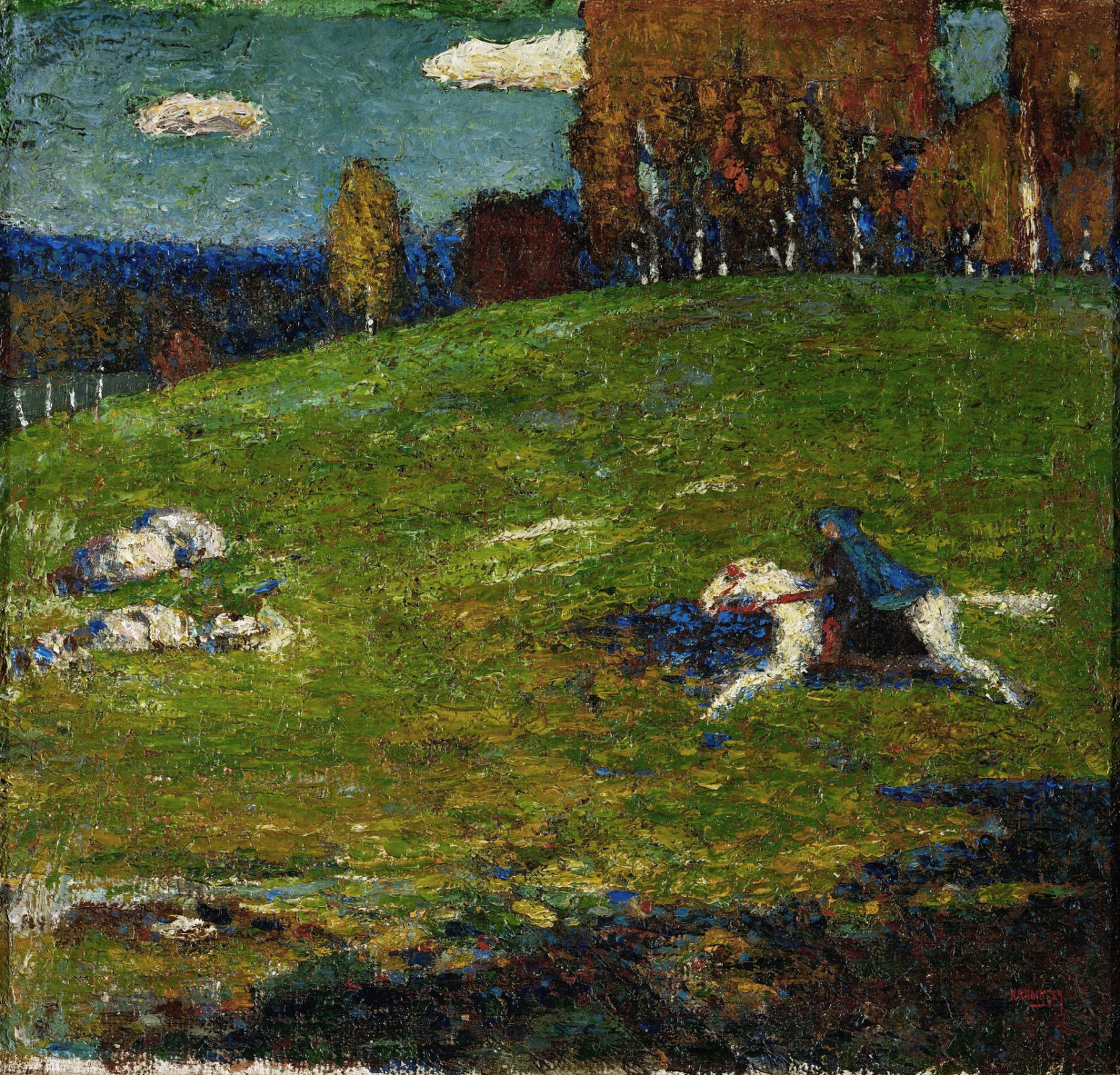Der Blaue Reiter (1903) by Wassily Kandinsky

vacancies, absences
“As far as I’m concerned, all the literatures of the fantastic are related — perhaps in a parodic, perhaps in a dancing-dervish fashion — to the planet itself. They are planetary fictions. When I think of horror over the last 60 years since the end of World War II, it strikes me that the central function is not the traditional recovery that fantasy is involved in exemplifying and that so much literature necessarily gives us to believe is possible, but that the central function of horror is coping with amnesia. That the world we have been moving into is a world that has progressively evacuated most of the meanings that allow people to make sense of their lives. That the dissolution of the boundaries between privacy and the rest of the world is part of the same reduction of the capacity of memory to make sense, the capacity of our cultures not to create what I’ve called in a couple of pieces ‘cenotaphic fiction.’ Much of the world that has been created since World War II is a set of cenotaphs, monuments to that which is not there: vacancies, absences.” -John Clute

Finished 2025: Pea, Bee, & Jay #1: Stuck Together by Brian 📚
I don’t know why I can’t accept anything about this book. I can accept all sorts of weird plots and characters, but it’s a bridge roo far for me to accept that a pea, a bee, and a jay could be friends. I’m slightly offended by this book! It’s ridiculous and my reaction is ridiculous.

Finished 2025: The Quiet Eye: A Way of Looking at Pictures by Sylvia Shaw Judson 📚
One never finishes this book.

Finished 2025: Lady into Fox (Dover Literature: Science Fiction/Fantas… by David Garnett 📚
I’m grateful that this gem was called to my attention. Since reading it last week, I have been recommending it repeatedly!

Finished 2025: Treasure Island - Illustrated by N. C. Wyeth by Robert Louis Stevenson 📚
Re-read. Always a joy to re-read.
Sørina Higgins is starting a podcast! She has no idea who I am, but I have been a reader of her Charles Williams blog for over a decade now. I listen to very few podcasts; this is one that I’m excited about.
Confirmed: Kierkegaard was a smoker.
When 'academic' is another word for 'detective'
I have greatly enjoyed the following works of sifting historical evidence carefully and constructing an argument based on doing so. From most speculative to least speculative, all excellent:
Michael Ward: How did Lewis come up with the name ‘Narnia’?
Jon Nelson: “Johnny Crookedhouse” (1957)
Holly Ordway: What did J.R.R. Tolkien REALLY think of C.S. Lewis’s Narnia?

Finished 2025: Shared Life by Donald Macleod 📚
Good enough for what it is (a slim introduction to the topic for beginners), I guess.
read fewer books but read them with greater care
There are many valid reasons to read, but if you’re about self-improvement in one way or another — an increase in knowledge or insight or, hey, even wisdom — then one of the most reliable ways to become a better reader is to read fewer books but read them with greater care. If you would be wise, an essential book you know intimately — through slow reading or repeated reading — is of more use to you than a dozen lesser books that you know only casually.

Finished 2025: The Bluest Eye by Toni Morrison 📚 My first Morrison (and Morrison’s first novel), past due. The writing is lovely. Characters are (mostly) fully realized. What I wasn’t expecting was the degree to which this novel is about mass media and the ways in which 20th century mass media shaped cultural expectations. In the best way, it is a particular story that speaks to broader shared context and illuminates it.
The Maverick Animator of Chaos About Shinya Ohira.
Journalist Eliot Stein takes us along on the unique adventure of kayaking the perimeter of Manhattan Island and observes some of the pockets of nature that persist within New York’s concrete jungle.
Note to myself. Read this: ANTIQUA ET NOVA
Le Cyclope (c. 1914) by Odilon Redon

